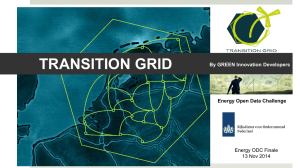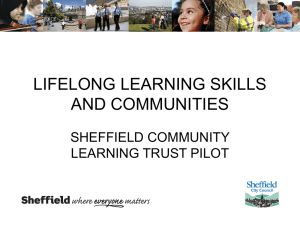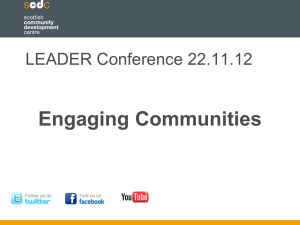Submission Template
advertisement
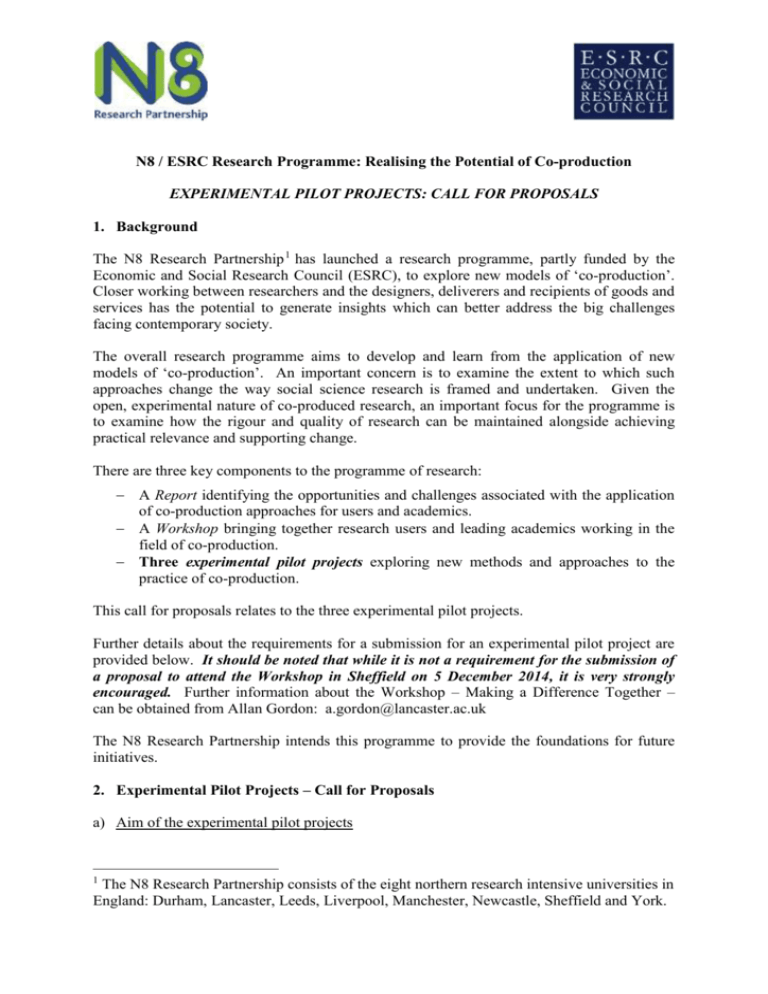
N8 / ESRC Research Programme: Realising the Potential of Co-production EXPERIMENTAL PILOT PROJECTS: CALL FOR PROPOSALS 1. Background The N8 Research Partnership 1 has launched a research programme, partly funded by the Economic and Social Research Council (ESRC), to explore new models of ‘co-production’. Closer working between researchers and the designers, deliverers and recipients of goods and services has the potential to generate insights which can better address the big challenges facing contemporary society. The overall research programme aims to develop and learn from the application of new models of ‘co-production’. An important concern is to examine the extent to which such approaches change the way social science research is framed and undertaken. Given the open, experimental nature of co-produced research, an important focus for the programme is to examine how the rigour and quality of research can be maintained alongside achieving practical relevance and supporting change. There are three key components to the programme of research: A Report identifying the opportunities and challenges associated with the application of co-production approaches for users and academics. A Workshop bringing together research users and leading academics working in the field of co-production. Three experimental pilot projects exploring new methods and approaches to the practice of co-production. This call for proposals relates to the three experimental pilot projects. Further details about the requirements for a submission for an experimental pilot project are provided below. It should be noted that while it is not a requirement for the submission of a proposal to attend the Workshop in Sheffield on 5 December 2014, it is very strongly encouraged. Further information about the Workshop – Making a Difference Together – can be obtained from Allan Gordon: a.gordon@lancaster.ac.uk The N8 Research Partnership intends this programme to provide the foundations for future initiatives. 2. Experimental Pilot Projects – Call for Proposals a) Aim of the experimental pilot projects 1 The N8 Research Partnership consists of the eight northern research intensive universities in England: Durham, Lancaster, Leeds, Liverpool, Manchester, Newcastle, Sheffield and York. The aim of the experimental pilot projects is to provide opportunities to learn about the challenges and opportunities associated with doing co-production. The pilots should be experimental and might focus on one aspect of undertaking co-produced research, such as the refinement of (better) research questions, how to build effective partnerships, what makes for a mutually successful placement or new models of commissioning research. These examples are purely provided for illustrative purposes and should not in any way be regarded as a template. Pilot projects should demonstrate: (i) a novelty of approach; and (ii) a capacity for reflective learning. The findings from the three pilot projects will be expected to assist in addressing the following research questions: What makes co-production effective? What are the benefits and barriers to coproduction? How can quality be ensured in co-produced research? Are there differences in perception between academics and non-academics as to what constitutes effective co-production? What is required to facilitate effective co-production? b) Criteria for selection of experimental pilot projects The criteria for the assessment and selection of the experimental pilot projects are: Feasibility of the pilot project within time and resource constraints. Demonstration of methodological innovation. Consideration of opportunities for reflective learning. The appropriateness and innovativeness of the partnership arrangements between collaborators. Identification of how the project will further theoretical and / or practical understanding of co-production. c) Process for selecting the experimental pilot projects The experimental pilot projects will be selected on the basis of the following process: Submission of a short application; and Assessment and selection by the Experimental Pilot Projects Selection Panel. Membership of Experimental Pilot Projects Selection Panel: Ray Hudson (Chair) (Acting VC, University of Durham) Heather Campbell (Principal Investigator, University of Sheffield) Rod Hulme (Member Advisory Board, Smith-Nephew, tbc) Andrew Lewis (Chair Advisory Board, Newcastle City Council) Colin Mellors (PVC Business and Community, University of York) d) Timetable for the projects The projects should meet the following timetable: The duration of the projects is for a maximum of 6 months from February 2015- July 2015. Final reports should be competed by 31 July 2015. e) Budget The budget available to support each project is as follows: The maximum funding available for each of the three experimental pilot projects is £15,000. Funding is only allowable for direct costs. The demonstration of further match funding by any of the partners will be welcomed whether in cash or kind. f) Partners The combination of potential partners for a project should be as follows: All projects should be designed with and include at least one non-academic partner. Researchers based in any of the N8 partnership universities are eligible to apply, with the exception of the University of Sheffield as a lead partner. Projects may incorporate expertise from more than one N8 partner institution, but this is not a requirement. Non-academic partners could include individuals or organisations in the private, public or community sectors and with a focus of concern related to the design, delivery or receipt of goods or services. g) Outputs The main output requirement is a final report (of the order of 5,000 words). The report must be completed by 31 July 2015. h) Further information Administrative queries should be addressed to Allan Gordon: a.gordon@lancaster.ac.uk. Contacts for specific questions about the research brief are: Professor Heather Campbell, N8 Co-production Principal Investigator: h.j.campbell@sheffield.ac.uk or Dr David Vanderhoven, N8 Co-production Research Associate: d.vanderhoven@sheffield.ac.uk. i) Deadline for submission The deadline for the submission of applications is 12:00 noon on Monday 5 January 2015. Applications should be submitted by email to Allan Gordon: a.gordon@lancaster.ac.uk All applicants will be notified as to the outcome by 16 January 2015 3. Submission documents a) Presentation of submission A submission must be made up of single attachment and follow the template set out below. All text should be at least 12 point in size. CVs for the lead investigators should be included as an appendix and should not exceed one side of A4. b) Template for submission The following headings should be used to structure the proposal: Title of project Names and institutional affiliations of partners and lead investigators Short description of the project (maximum of 300 words) Outline of the project (maximum 2000 words) and should include: o Objectives o Project design and methods o Novelty of approach to co-production o How will relevance to the non-academic community be enhanced by the approach adopted o How have opportunities for learning been integrated into the project design Ethical considerations Timetable Budget – summary of the resources required for the project and any matched funding
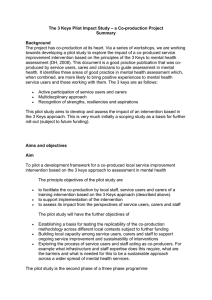

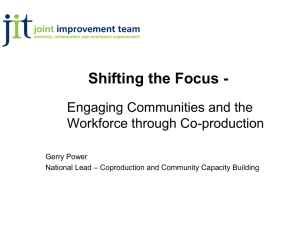
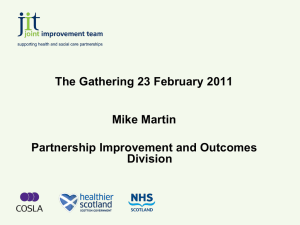
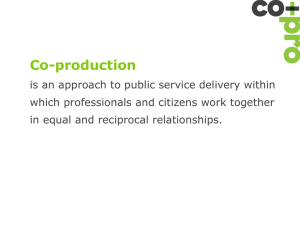
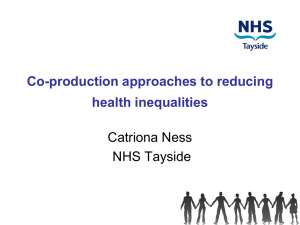
![Transformational Change [Powerpoint Presentation]](http://s2.studylib.net/store/data/005447411_1-da0a83bd34bdb90183940ab700125003-300x300.png)
